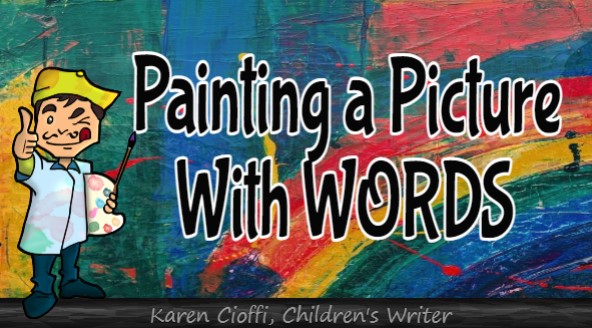I read an article by Joseph Ciccanti about Vin Scully, a baseball announcer in the radio era. Unfortunately, I don’t remember where I read it; even worse, I forgot to write it down. Never a good thing to rely on memory. I did try a Google search for the title and author but was told, “It looks like there aren't many great matches for your search." Anyway, Scully was famous for his use of description and adjectives to paint visual images with words. As a radio announcer, it was his job to bring the at-home audience into the ballpark. It was his job to let them hear the crack of the bat and the yelling fans. It was his job to grab hold of their senses by describing the excitement, the anticipation, the action, the smells, and sights. Well, with writing, you need to employ the same strategies. As a book writer, you don’t have the advantage of the visuals TV, movies, and videos have. Add Details to Your Scene One way Scully got the job done was by adding details to the scene. Ciccanti quoted Scully’s announcement of the Sandy Koufax perfect game in 1956. “On the scoreboard in right field, it is 9:46 p.m. in the City of the Angels, Los Angeles, California. And a crowd of 29,139 just sitting in to see the only pitcher in baseball history to hurl four no-hit, no-run games.” Scully brings his audience into the ballpark. Another example of adding details might be if you need to describe a run-down, sinister house: Cracked shingles hung on the dingy grey house. Chipped paint and broken shutters added to its eerie aura. This paints a picture. Stephen King advises to “leave in details that impress you the most strongly: leave in the details you see the most clearly; leave everything else out.” Going back to the sinister house, maybe there were a few broken windows. Perhaps the front door was off its hinges. Maybe some stepping stones leading to the front door were missing. The details could go on and on. But are they necessary? Choose what you think is most important. Choose what you think will give the reader the picture you want to paint. And keep in mind that the reader will use his imagination to fill in what you don’t. Use the Power of Observation Scully’s second strategy was “the power of observation to build suspense.” To do this, you need to be observant of what’s happening in your story. You need to see everything in the scene. Then decide what you want to convey. What will pull on the emotional strings of the reader? To build emotion during the 1956 World Series when Don Larsen pitched the perfect game against the Brooklyn Dodgers, Scully said that Yankee Stadium was “shivering in its concrete foundation.” Applying this to writing a fiction story: Lucas slammed his body against the glass pane and pressed hard, trying to get a better look. Or, more so, wishing he could press hard enough into the glass so to somehow intermingle with the particles so he could miraculously pass through it. Through the power of observation, the reader can feel the suspense. The reader knows that Lucas desperately wants to be inside that room. At this point, the reader may not know why, but they can feel his desperation. In John Muir’s Lesson Plan for Observation and Descriptive Writing, he says, “Observational writing uses the senses to convey details through descriptive words.” This writing tool allows the reader to picture what the author is conveying. Whether using details or observational writing, sprinkling your story with metaphors, similes, and simple adjectives will help the reader connect with your story. It will bring the reader into the story.
I’m a working children’s ghostwriter, rewriter, and coach. I can help turn your story into a book you’ll be proud to be author of, one that’s publishable and marketable. Or, maybe you’d rather do-it-yourself. Check out my book, How to Write a Children’s Fiction Book. If your children’s manuscript already done, check out Writers on the Move Publishing. You can contact me at: kcioffiventrice@gmail.com. Or, you can give me a call at 834---347---6700. (Please leave a message - I'll get back to you as soon as I can.)


